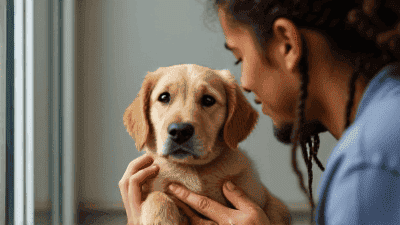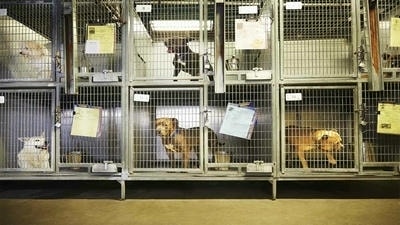Frequently Asked Questions About Pet Adoption: What First Timers Should Know

Adopting a pet is a life-changing decision that brings joy, companionship, and responsibility. For first-timers, the process can be both exciting and overwhelming. With so many questions to consider, it’s important to be well-informed before bringing a new furry friend into your home. This comprehensive guide addresses the most frequently asked questions about pet adoption, helping you navigate the process with confidence and ensure a smooth transition for both you and your new pet.
1. Why Should I Adopt a Pet Instead of Buying One?
Saving a Life
Millions of animals end up in shelters each year, and adoption gives them a second chance at life. By adopting, you’re providing a loving home to a pet in need.
Cost-Effective
Adoption fees are typically lower than the cost of buying a pet from a breeder or pet store. These fees often include vaccinations, spaying/neutering, and microchipping.
Supporting Animal Welfare
Adoption helps reduce the demand for puppy mills and unethical breeding practices, promoting responsible pet ownership.
Variety of Choices
Shelters and rescue organizations have pets of all ages, breeds, sizes, and personalities, making it easier to find the right match for your lifestyle.
2. What Types of Pets Can I Adopt?

Dogs
From puppies to seniors, small breeds to large breeds, shelters have dogs for every type of household.
Cats
Whether you prefer a playful kitten or a calm senior cat, there are plenty of feline companions waiting for homes.
Small Animals
Rabbits, guinea pigs, hamsters, and other small animals are also available for adoption.
Birds
Some rescue organizations specialize in rehoming birds, offering parrots, cockatiels, and other species.
Reptiles and Exotic Pets
For those interested in reptiles or exotic pets, certain rescues focus on these unique animals.
3. How Do I Choose the Right Pet for Me?
Consider Your Lifestyle
- Activity Level: Do you prefer an active dog for running or hiking, or a calmer pet that enjoys lounging?
- Living Space: Is your home suitable for a large dog, or would a smaller pet be a better fit?
- Time Commitment: Do you have enough time to care for a high-maintenance pet, or would a low-maintenance pet be more appropriate?
Think About Your Family
- Children: Some pets are more tolerant and patient with children, while others may be better suited for households without kids.
- Other Pets: If you already have pets, consider their temperament and whether they’ll get along with a new addition.
Age and Breed
- Puppies and Kittens: These require more time, training, and patience.
- Adult and Senior Pets: These are often already house-trained and have established personalities, making them a great choice for first-time owners.
4. What Is the Adoption Process Like?

Research Shelters and Rescues
Start by researching local shelters and rescue organizations. Visit their websites or social media pages to learn about their adoption policies and available pets.
Complete an Application
Most shelters require potential adopters to fill out an application. This helps them match you with a pet that suits your lifestyle and living situation.
Meet the Pet
Once your application is approved, you’ll have the opportunity to meet the pet in person. This is your chance to interact with them and ensure they’re a good fit.
Home Visit (If Required)
Some organizations may conduct a home visit to ensure your living environment is safe and suitable for the pet.
Pay the Adoption Fee
Adoption fees vary depending on the organization and the pet’s age, breed, and medical needs. These fees typically cover vaccinations, spaying/neutering, and microchipping.
Bring Your Pet Home
After completing the adoption process, you’ll be ready to bring your new pet home. Be prepared to provide plenty of love, patience, and care as they adjust to their new environment.
5. What Should I Prepare Before Bringing My Pet Home?
Pet-Proof Your Home
- Remove hazardous items like toxic plants, electrical cords, and small objects that could be swallowed.
- Secure cabinets and trash cans to prevent your pet from accessing unsafe items.
Gather Essential Supplies
- Food and Water Bowls: Choose durable, easy-to-clean options.
- Bedding: Provide a comfortable bed or crate for your pet to sleep in.
- Toys: Keep your pet entertained with a variety of toys.
- Grooming Supplies: Brushes, nail clippers, and shampoo will help you keep your pet clean and healthy.
- Litter Box (for Cats): Choose a box that’s large enough for your cat and place it in a quiet, accessible location.
Schedule a Vet Visit
Take your pet to the vet shortly after adoption for a checkup and to establish a care plan.
6. How Can I Help My Pet Adjust to Their New Home?

Create a Safe Space
Set up a designated area where your pet can retreat and feel secure. This is especially important for shy or anxious pets.
Establish a Routine
Consistency helps pets feel more comfortable. Stick to a regular schedule for feeding, walks, and playtime.
Introduce Family Members Slowly
Allow your pet to get to know each family member at their own pace. Avoid overwhelming them with too much attention at once.
Be Patient
It may take time for your pet to adjust to their new surroundings. Offer plenty of love, patience, and positive reinforcement.
7. What Are the Costs of Owning a Pet?
Initial Costs
- Adoption fees
- Spaying/neutering (if not included)
- Supplies (e.g., food, bedding, toys)
Ongoing Costs
- Food and treats
- Veterinary care (e.g., checkups, vaccinations, emergency visits)
- Grooming
- Pet insurance (optional)
Unexpected Costs
- Emergency medical treatment
- Training classes
- Pet-sitting or boarding
8. What If I Can’t Keep My Pet?
Reasons for Rehoming
Sometimes, unforeseen circumstances make it difficult to keep a pet. Common reasons include financial hardship, allergies, or housing restrictions.
Responsible Rehoming
If you must rehome your pet, contact the shelter or rescue organization where you adopted them. Many organizations have policies in place to take back pets if needed.
Avoid Abandonment
Never abandon your pet. Shelters and rescues are equipped to find them a new home in a safe and responsible way.
9. How Can I Support Animal Shelters and Rescues?
Volunteer
Many shelters rely on volunteers to help with tasks like cleaning, walking dogs, and socializing cats.
Donate
Shelters often need supplies like food, bedding, and toys. Monetary donations also help cover medical expenses and operational costs.
Foster
Fostering provides temporary care for pets until they find permanent homes. It’s a great way to help if you’re not ready to adopt.
Spread Awareness
Share information about adoptable pets on social media and encourage others to consider adoption.
Conclusion
Adopting a pet is a rewarding experience that comes with responsibility and commitment. By understanding the adoption process, choosing the right pet, and preparing for their arrival, you can ensure a smooth transition for both you and your new companion. Remember, shelters and rescue organizations are valuable resources that can guide you every step of the way. With love, patience, and care, you’ll be well on your way to building a lifelong bond with your adopted pet.








